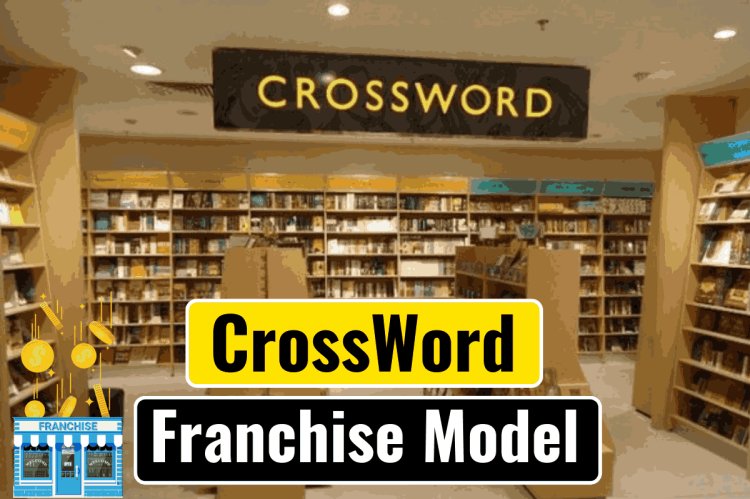Crossword Franchise Model
The enduring appeal of crossword puzzles has fuelled a thriving market, making the crossword franchise model an intriguing option for aspiring entrepreneurs captivated by the world of words and eager to capitalize on this enduring pastime. This article delves into the intricacies of this franchise model, exploring its core elements, potential benefits, and crucial considerations for prospective franchisees seeking to navigate the exciting world of crossword puzzle ownership.

Introduction:
For decades, crossword puzzles have captivated minds, offering a delightful blend of challenge and intellectual stimulation. The recent surge in popularity of puzzle books, apps, and tournaments underscores the booming crossword puzzle market. Within this growth, the crossword franchise model has emerged as a compelling avenue for business owners seeking to capitalize on the puzzles' enduring allure.
The Enthralling World of Crosswords:
Crossword puzzles hold a unique charm due to their inherent balance of challenge and gratification. Each grid presents a fresh set of clues, ranging from simple definitions to cryptic wordplay. Solvers employ deductive reasoning, vocabulary prowess, and lateral thinking to unravel the mysteries within the grid. The joy of completing a grid or deciphering a particularly tricky clue fosters a sense of accomplishment and intellectual reward, fueling the passion of crossword enthusiasts.
Beyond entertainment, crossword puzzles offer a window into language and culture. Clues and answers encompass a rich tapestry of human knowledge and experience, encompassing pop culture references, historical events, literary quotes, and scientific terminology. Solvers embark on a journey of discovery, traversing diverse subjects and expanding their horizons with each puzzle conquered.
Cognitive Benefits of Crosswords:
Research suggests that regularly engaging with crossword puzzles extends beyond mere amusement. These puzzles can enhance vocabulary acquisition, improve memory retention, and sharpen problem-solving skills. As individuals grapple with clues and manipulate letters within the grid, they stimulate various cognitive processes, fostering mental agility and resilience.
Understanding the Crossword Franchise Model:
The crossword franchise model involves licensing a well-established crossword puzzle brand and business system to individuals or entities (franchisees) who wish to operate their own puzzle-focused outlets. Franchisees gain access to a comprehensive package, typically including:
· Brand Recognition: Leverage the established reputation and trust of the crossword brand to facilitate customer acquisition.
· Puzzle Content: Access a diverse range of puzzles, often crafted by experienced constructors, ensuring a steady stream of fresh and engaging content.
· Training and Support: Benefit from comprehensive training programs covering puzzle creation, customer service, marketing strategies, and operational procedures. Ongoing support is provided to assist franchisees in navigating challenges and optimizing performance.
· Marketing and Advertising: Capitalize on national or regional marketing campaigns orchestrated by the franchisor, along with access to promotional materials and strategies tailored to attract puzzle enthusiasts.
· Operational Guidance: Utilize operational manuals detailing best practices for managing inventory, staffing, financial reporting, and maintaining quality standards.
Benefits of the Crossword Franchise Model:
The crossword franchise model presents several attractive advantages for aspiring business owners:
· Established Brand Equity: By aligning with a reputable crossword brand, franchisees can capitalize on existing consumer trust and loyalty, potentially accelerating business growth.
· Reduced Entry Barrier: Franchisees gain access to a turnkey business concept with established systems and processes, minimizing the complexity and risk associated with launching a new venture from scratch.
· Community Engagement: Crossword puzzle outlets often foster a sense of community among patrons, providing a space for enthusiasts to gather, collaborate, and share their passion for puzzling.
· Diversification Opportunities: Beyond traditional retail operations, franchisees can explore additional revenue streams like online puzzle subscriptions, event hosting, and educational workshops.
Considerations for Prospective Franchisees:
While the crossword franchise model offers compelling advantages, careful evaluation of the following factors is crucial for aspiring franchisees:
· Market Demand: Assess the demand for crossword puzzles in the target market, considering demographics, competition, and consumer preferences.
· Financial Viability: Conduct a thorough financial analysis to determine the initial investment requirements, ongoing operational expenses, and projected revenue potential.
· Franchise Agreement: Review the terms and conditions of the franchise agreement with legal and financial advisors, focusing on fees, territory rights, renewal options, and exit clauses.
· Support Network: Evaluate the level of support provided by the franchisor, including training programs, operational assistance, and ongoing marketing initiatives, to ensure adequate guidance and resources are available.
Cost and Fees:
Establishing a crossword puzzle franchise involves several costs:
· Franchise Fee: The initial payment to the franchisor for the rights to use their brand, business model, and support services. This fee varies depending on the franchisor's popularity and the scope of the agreement.
· Training and Support: Costs associated with training programs provided by the franchisor.
- Equipment and Inventory: Investment in equipment like computers, printers, puzzle creation software, and inventory of puzzle books or materials.
- Location and Lease: Securing a suitable location for the franchise is crucial. Costs include leasing or purchasing commercial real estate, leasehold improvements, utilities, and insurance.
- Marketing and Advertising: Franchisees are typically responsible for local marketing efforts to attract customers. While franchisors may provide support, additional costs for localized marketing initiatives may be incurred.
- Operational Expenses: Ongoing operational expenses include salaries for staff, utilities, maintenance, insurance, and other overhead costs.
- Royalty Fees: Franchisees often pay ongoing royalty fees to the franchisor, typically calculated as a percentage of gross sales or a flat monthly fee. These fees contribute to the continued support and services provided by the franchisor.
Conclusion:
The crossword franchise model presents a unique opportunity for individuals passionate about puzzles to leverage a proven business concept and tap into the enduring popularity of crosswords. By carefully evaluating the market, financial viability, franchise agreement terms, and franchisor support, aspiring franchisees can make informed decisions about entering this niche market. While the initial investment and ongoing fees require careful consideration, the potential rewards of fostering a community of puzzle enthusiasts and building a successful business around the enduring love of crosswords can be a compelling proposition for the right entrepreneur.












